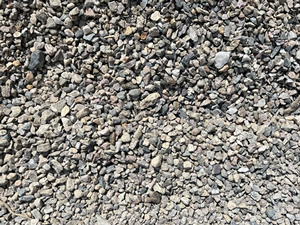
Landscaping is a great way to enhance the beauty and functionality of outdoor spaces. However, many landscaping products on the market today contain harmful chemicals and substances that can have a negative impact on the environment. Understanding the environmental impact of non-organic landscaping products is crucial for making informed choices that are both sustainable and eco-friendly. In this article, we will explore the various ways in which non-organic landscaping products can harm the environment and provide tips on how to minimize their negative effects.
The Use of Chemical Pesticides and Herbicides
Impact on Soil Health
- Chemical pesticides and herbicides can disrupt the natural balance of microorganisms in the soil, leading to a decrease in soil fertility.
- These chemicals can also leach into the groundwater, contaminating water sources and posing a threat to both human health and aquatic life.
Impact on Biodiversity
- Chemical pesticides and herbicides can harm beneficial insects, birds, and other wildlife that play a crucial role in maintaining a healthy ecosystem.
- The loss of biodiversity can disrupt the natural food chain and lead to imbalances in the ecosystem.
The Use of Synthetic Fertilizers
Impact on Water Quality
- Excessive use of synthetic fertilizers can result in runoff into nearby water bodies, causing algal blooms and oxygen depletion.
- This can have devastating effects on aquatic life and disrupt the overall ecosystem.
Impact on Air Quality
- Synthetic fertilizers release greenhouse gases such as nitrous oxide, contributing to air pollution and climate change.
- The production and transportation of these fertilizers also have a significant carbon footprint.
The Use of Synthetic Mulches and Fabrics
Impact on Soil Health
- Synthetic mulches and fabrics can prevent water and air from reaching the soil, leading to compaction and reduced soil fertility.
- They can also release harmful chemicals as they degrade, further damaging the soil and surrounding environment.
Impact on Wildlife
- Wildlife may become entangled in synthetic materials, leading to injuries or even death.
- The use of synthetic mulches and fabrics can also disrupt the natural foraging and nesting behaviors of wildlife.
How to Minimize the Environmental Impact of Landscaping Products
Choose Organic and Natural Alternatives
- Opt for organic fertilizers, pesticides, and herbicides that are derived from natural sources such as compost, manure, and plant extracts.
- Use natural mulches like wood chips, straw, or leaves instead of synthetic materials.
Practice Sustainable Landscaping Techniques
- Implement water-saving strategies such as drip irrigation and rainwater harvesting to reduce the need for synthetic fertilizers and pesticides.
- Encourage biodiversity by planting native species that support local wildlife and promote a healthy ecosystem.
Proper Disposal of Landscaping Waste
- Avoid burning or dumping landscaping waste, as this can release harmful pollutants into the air and soil.
- Compost organic materials like grass clippings, leaves, and pruning waste to create nutrient-rich soil amendments for your garden.
By understanding the environmental impact of non-organic landscaping products and taking steps to minimize their use, you can create a beautiful outdoor space that is not only aesthetically pleasing but also sustainable and eco-friendly. Making conscious choices about the products you use in your landscaping efforts can help protect the environment and preserve the natural beauty of our planet for future generations.